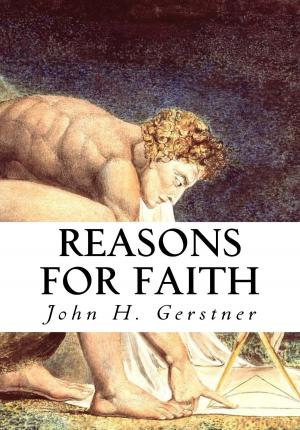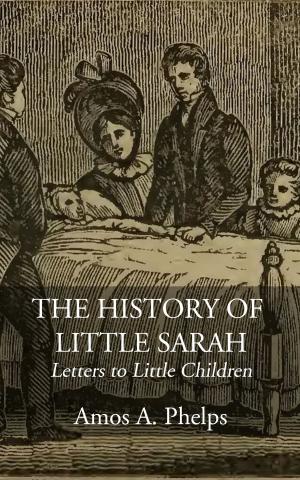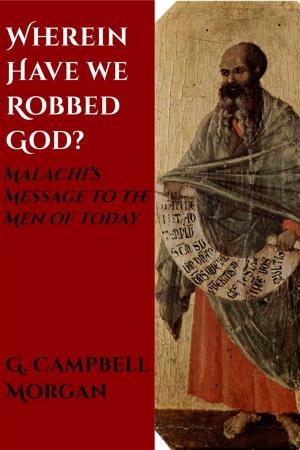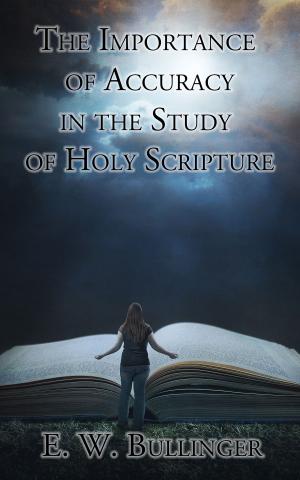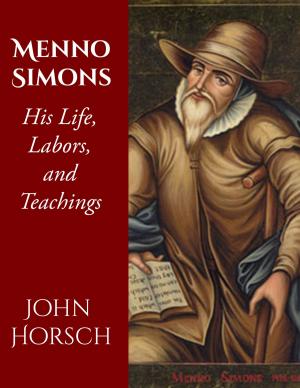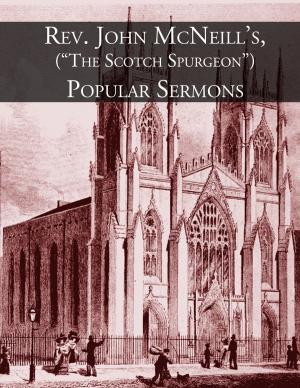Essays on the Doctrine of Inspiration
Nonfiction, Religion & Spirituality, Bible & Bible Studies, Hermeneutics, Criticism & Interpretation, Study| Author: | B. B. Warfield, A. A. Hodge | ISBN: | 1230002060972 |
| Publisher: | CrossReach Publications | Publication: | December 23, 2017 |
| Imprint: | Language: | English |
| Author: | B. B. Warfield, A. A. Hodge |
| ISBN: | 1230002060972 |
| Publisher: | CrossReach Publications |
| Publication: | December 23, 2017 |
| Imprint: | |
| Language: | English |
The word “inspire” and its derivatives seem to have come into Middle English from the French, and have been employed from the first (early in the 14th century) in a considerable number of significations, physical and metaphorical, secular and religious. The derivatives have been multiplied and their applications extended during the procession of the years, until they have acquired a very wide and varied use. Underlying all their use, however, is the constant implication of an influence from without, producing in its object movements and effects beyond its native, or at least its ordinary powers. The noun “inspiration,” although already in use in the 14th century, seems not to occur in any but a theological sense until late in the 16th century. The specifically theological sense of all these terms is governed, of course, by their usage in Latin theology; and this rests ultimately on their employment in the Latin Bible. In the Vulgate Latin Bible the verb inspiro (Gen. 2:7; Wisdom of Solomon 15:11; Ecclesiasticus 4:12; 2 Tim. 3:16; 2 Pet. 1:21) and the noun inspiratio (2 Sam. 22:16; Job 32:8; Psalm 18:15; Acts 17:25) both occur 4 or 5 times in somewhat diverse applications. In the development of a theological nomenclature, however, they have acquired (along with other less frequent applications) a technical sense with reference to the Biblical writers or the Biblical books. The Biblical books are called inspired as the Divinely determined products of inspired men; the Biblical writers are called inspired as breathed into by the Holy Spirit, so that the product of their activities transcends human powers and becomes Divinely authoritative. Inspiration is, therefore, usually defined as a supernatural influence exerted on the sacred writers by the Spirit of God, by virtue of which their writings are given Divine trustworthiness.
The word “inspire” and its derivatives seem to have come into Middle English from the French, and have been employed from the first (early in the 14th century) in a considerable number of significations, physical and metaphorical, secular and religious. The derivatives have been multiplied and their applications extended during the procession of the years, until they have acquired a very wide and varied use. Underlying all their use, however, is the constant implication of an influence from without, producing in its object movements and effects beyond its native, or at least its ordinary powers. The noun “inspiration,” although already in use in the 14th century, seems not to occur in any but a theological sense until late in the 16th century. The specifically theological sense of all these terms is governed, of course, by their usage in Latin theology; and this rests ultimately on their employment in the Latin Bible. In the Vulgate Latin Bible the verb inspiro (Gen. 2:7; Wisdom of Solomon 15:11; Ecclesiasticus 4:12; 2 Tim. 3:16; 2 Pet. 1:21) and the noun inspiratio (2 Sam. 22:16; Job 32:8; Psalm 18:15; Acts 17:25) both occur 4 or 5 times in somewhat diverse applications. In the development of a theological nomenclature, however, they have acquired (along with other less frequent applications) a technical sense with reference to the Biblical writers or the Biblical books. The Biblical books are called inspired as the Divinely determined products of inspired men; the Biblical writers are called inspired as breathed into by the Holy Spirit, so that the product of their activities transcends human powers and becomes Divinely authoritative. Inspiration is, therefore, usually defined as a supernatural influence exerted on the sacred writers by the Spirit of God, by virtue of which their writings are given Divine trustworthiness.

